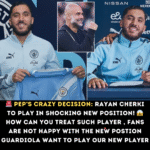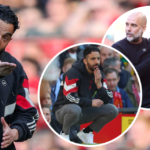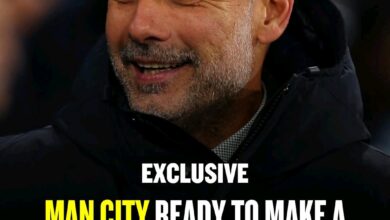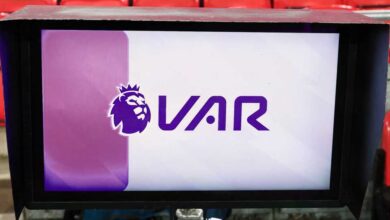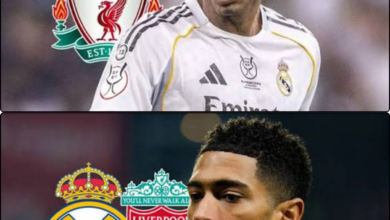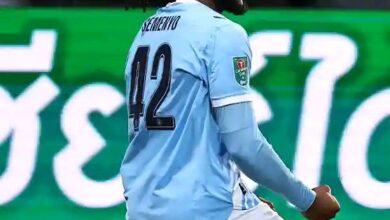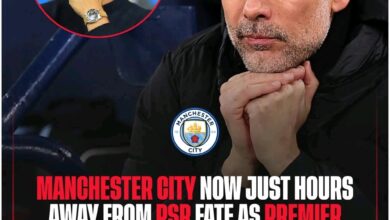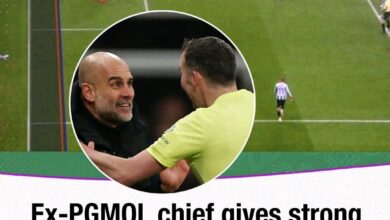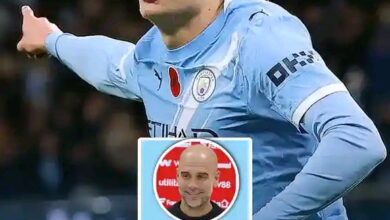Arsenal urged to sign Man City star after £36m Rayan Cherki transfer
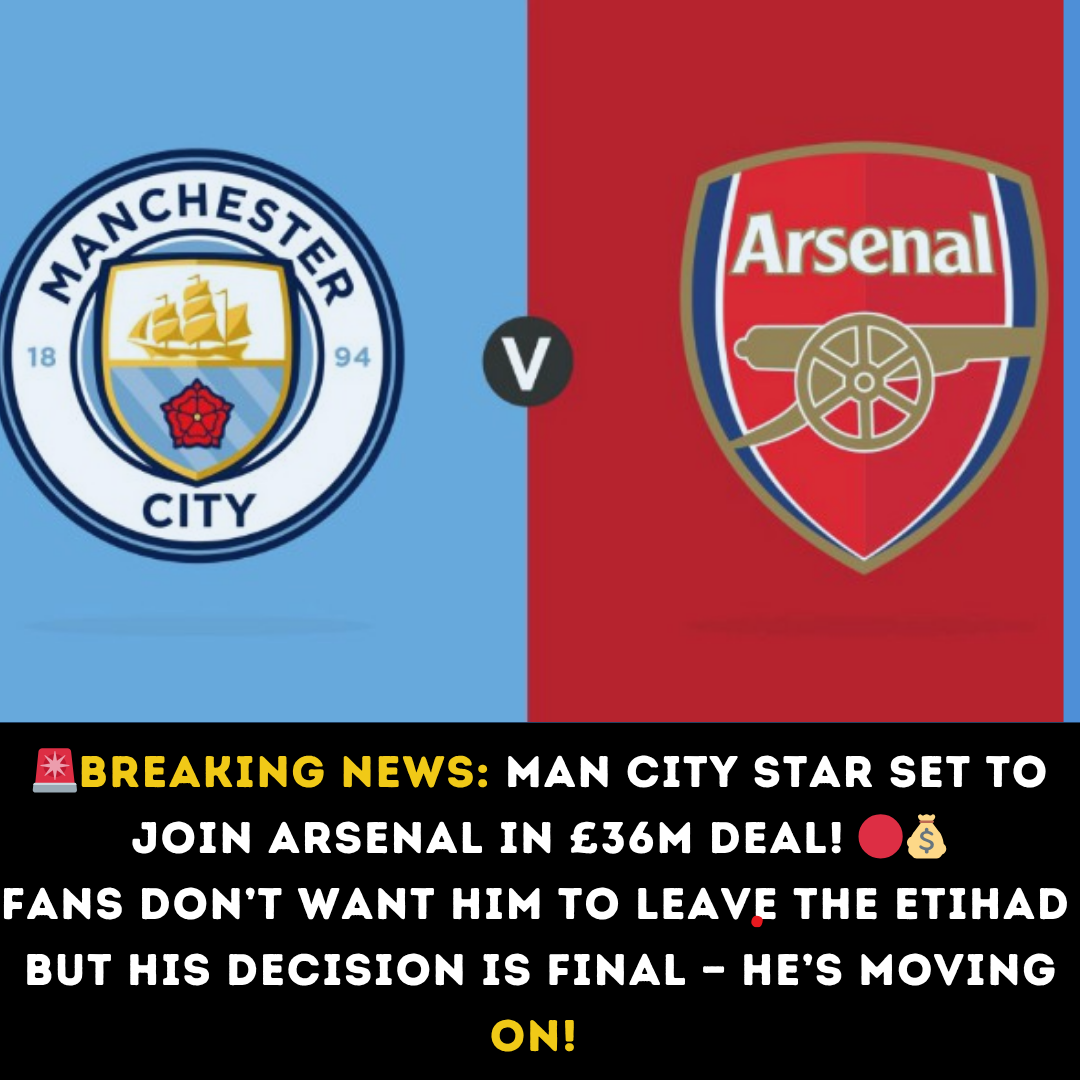
The summer of 2025 has already proven to be one of significant transformation for Manchester City, with Pep Guardiola’s side making bold moves in the transfer market as they prepare for the upcoming Club World Cup. The most notable addition to their squad has been the £36.1 million acquisition of Rayan Cherki from Lyon, a signing that has sent ripples throughout the Premier League and sparked intense speculation about the future of several existing City players.
The arrival of the 21-year-old French international has not only strengthened City’s attacking options but has also raised serious questions about the long-term prospects of some of their established stars. None more so than Phil Foden, the homegrown talent who has been the poster boy for City’s academy success story. The implications of Cherki’s signing extend far beyond just squad depth, potentially signaling a new direction for the club and creating opportunities for their Premier League rivals.
The Rayan Cherki Acquisition: A Statement of Intent
Manchester City’s decision to invest €42.5 million (£36.1 million) in Rayan Cherki represents more than just another high-profile signing; it’s a statement of intent from a club that continues to evolve under Pep Guardiola’s guidance. The young Frenchman’s journey from Lyon to the Etihad Stadium has been closely watched by football enthusiasts across Europe, particularly given his impressive performances in Ligue 1 and his recent breakthrough into the French national team.
Cherki’s versatility and technical ability made him an attractive proposition for City’s recruitment team. Primarily operating on the right side of Lyon’s attack, the 21-year-old has demonstrated the kind of pace, creativity, and goal-scoring threat that Guardiola values in his attacking players. His ability to cut inside from wide positions, create chances for teammates, and contribute defensively when required aligns perfectly with the tactical demands of modern football.
The timing of Cherki’s arrival is particularly significant, coming as Manchester City prepare for the Club World Cup. The tournament represents an opportunity for the club to showcase their global ambitions and add another prestigious trophy to their collection. By strengthening their squad with young, talented players like Cherki, City are sending a clear message that they intend to compete at the highest level across all competitions.
The French international’s recent performances for his national team have only added to the excitement surrounding his arrival. His first two senior appearances for France demonstrated his ability to perform on the biggest stage, showcasing the composure and skill that convinced City to part with such a substantial fee. For a player of his age to seamlessly transition from club to international football speaks volumes about his mental strength and adaptability.
Phil Foden’s Predicament: From Rising Star to Uncertain Future
Phil Foden’s situation at Manchester City has become one of the most intriguing storylines of the current transfer window. The 25-year-old midfielder, who was previously hailed as the Football Writers’ Player of the Year, has experienced a dramatic decline in form and influence during the 2024-25 season. This downturn in performance has coincided with increased competition for places in Guardiola’s starting eleven and has inevitably led to speculation about his future at the club.
The contrast between Foden’s previous achievements and his current predicament is stark. Not too long ago, he was considered one of the brightest young talents in English football, with his performances for both club and country earning widespread acclaim. His ability to operate in multiple positions across the midfield and attack made him an invaluable asset to Guardiola’s tactical system. However, football is a results-driven business, and recent performances have failed to meet the exceptionally high standards expected at Manchester City.
The arrival of Cherki has only intensified the spotlight on Foden’s situation. With the French international expected to occupy similar positions on the pitch, the competition for playing time has become even more fierce. Guardiola has never been one to show sentiment when it comes to team selection, and his track record suggests that current form and tactical suitability will always take precedence over past achievements or academy connections.
Foden’s struggles this season have been multifaceted. His decision-making in the final third has appeared rushed at times, and his usual incisive passing and movement have been less evident. These issues have been compounded by tactical changes that have seen City experiment with different formations and player combinations, often leaving Foden on the periphery of the action.
The psychological impact of reduced playing time cannot be underestimated. For a player who has been accustomed to regular first-team football, finding himself on the bench or out of the squad entirely can be a humbling experience. This situation has inevitably led to questions about whether a change of scenery might benefit both player and club.
Arsenal’s Interest: Mikel Arteta’s Strategic Vision
The suggestion that Arsenal could target Phil Foden represents an intriguing possibility that has captured the imagination of football fans and pundits alike. Former Chelsea, Marseille, and Republic of Ireland striker Tony Cascarino’s comments on talkSPORT have added fuel to the speculation, with his assertion that Foden would be a more likely target than Jack Grealish resonating with many observers.
Mikel Arteta’s connection to Manchester City, where he served as Pep Guardiola’s assistant coach, provides a unique perspective on Foden’s capabilities and potential. During his time at the Etihad Stadium, Arteta would have worked closely with the young midfielder, observing his development and understanding his strengths and weaknesses. This insider knowledge could prove invaluable if Arsenal were to pursue a transfer.
The potential fit between Foden and Arsenal’s current system is compelling. Arteta has built his team around technical players who can operate in multiple positions, with an emphasis on ball retention and quick, incisive passing. Foden’s natural ability to drift between the lines, create space for teammates, and contribute both goals and assists would complement Arsenal’s existing attacking options perfectly.
From a strategic standpoint, Arsenal’s interest in Foden would represent a significant statement of intent. The Gunners have been building a squad capable of challenging for the Premier League title and competing in European competitions. Adding a player of Foden’s caliber and experience would undoubtedly strengthen their chances of achieving these objectives.
The precedent set by previous transfers between the two clubs cannot be ignored. Manchester City’s willingness to sell Gabriel Jesus and Oleksandr Zinchenko to Arsenal demonstrated that they are prepared to do business with direct rivals when the circumstances are right. Both players have proven to be valuable additions to Arteta’s squad, suggesting that City’s cast-offs can thrive in North London.
However, any potential transfer would not be straightforward. Foden’s current contract situation, his wage demands, and City’s valuation of the player would all need to be considered. Additionally, the competitive nature of the Premier League means that other clubs would likely be interested in securing his services, potentially driving up the price and complicating any negotiations.
Manchester City’s Summer Overhaul: A Broader Perspective
The potential departure of Phil Foden must be viewed within the context of Manchester City’s broader summer transfer strategy. The club has been remarkably active in the market, with the signings of Cherki, Tijjani Reijnders, and Rayan Ait-Nouri representing a significant investment in young talent.
This approach reflects Guardiola’s evolving philosophy and the club’s long-term planning. Rather than relying solely on established stars, City appear to be investing in players who can develop and improve under their coaching staff. This strategy has the potential to yield significant returns both on and off the pitch, as younger players often have higher resale values and longer career trajectories.
The signing of Tijjani Reijnders from AC Milan has strengthened City’s midfield options, providing additional competition for places and tactical flexibility. The Dutch international’s ability to operate in multiple midfield roles makes him a valuable asset for Guardiola’s system, while his experience in Serie A and European competitions adds another dimension to the squad.
Rayan Ait-Nouri’s arrival from Wolverhampton Wanderers addresses City’s need for defensive depth and competition at left-back. The Algerian international’s pace and attacking threat from wide positions align with Guardiola’s preference for full-backs who can contribute to the team’s offensive play.
These signings, combined with the reported interest in selling Jack Grealish, suggest that City are undergoing a period of transition. The club’s hierarchy appears to be making calculated decisions about which players fit their long-term vision and which might be better served by moves elsewhere.
The Jack Grealish Situation: Parallels and Contrasts
The situation surrounding Jack Grealish provides an interesting parallel to the speculation about Phil Foden’s future. The England international’s exclusion from City’s Club World Cup squad sent shockwaves through the football community and has led to intense speculation about his future at the club.
Grealish’s time at Manchester City has been marked by moments of brilliance interspersed with periods of inconsistency. His £100 million transfer from Aston Villa in 2021 made him one of the most expensive British players in history, but his performances have not always justified that hefty price tag. Like Foden, he has found himself struggling to secure a regular place in Guardiola’s starting eleven.
The contrast between the two players’ situations is revealing. While Grealish arrived at City as an established Premier League star with a proven track record, Foden has been developed through the club’s academy system. This difference in background and investment might influence how the club approaches any potential departures.
Grealish’s exclusion from the Club World Cup squad represents a significant setback for the player, who has been working to rebuild his confidence and form. His social media update following the announcement suggested disappointment but also determination to prove his worth. However, the practical reality is that his absence from such a high-profile tournament could accelerate his departure from the club.
The potential sale of both Grealish and Foden would represent a significant shift in City’s attacking options. Both players bring different qualities to the team, and their departures would require careful planning to ensure adequate replacements are secured.
Tactical Implications and Squad Dynamics
The potential changes to Manchester City’s squad have significant tactical implications for Pep Guardiola’s approach to the upcoming season. The introduction of new players like Cherki, Reijnders, and Ait-Nouri will require careful integration into the existing system, while the possible departures of established players will create opportunities for others to step up.
Guardiola’s tactical flexibility has been one of his greatest strengths throughout his managerial career. His ability to adapt his system to suit the players at his disposal has been evident at Barcelona, Bayern Munich, and Manchester City. The current squad changes will test this adaptability once again, as he seeks to maintain the team’s competitive edge while integrating new talent.
The arrival of Cherki could see City experiment with different formations and attacking combinations. The French international’s pace and direct running could provide a different dimension to their attack, particularly in games where they need to break down stubborn defensive setups. His ability to operate from wide positions or centrally gives Guardiola multiple options for deployment.
Reijnders’ presence in midfield could allow for more rotation and tactical variation. His technical ability and work rate make him suitable for the high-intensity pressing game that Guardiola demands from his players. The competition for midfield places will undoubtedly raise the overall standard of performance within the squad.
The potential loss of Foden would require significant adjustment. His unique combination of creativity, pace, and positional awareness has been a key component of City’s attacking play in recent seasons. Finding adequate replacement for these qualities will be crucial for maintaining the team’s offensive potency.
Financial Considerations and Market Dynamics
The financial aspects of any potential Phil Foden transfer cannot be overlooked. Manchester City’s significant investments in new players will need to be balanced by outgoing transfers, particularly given the ongoing scrutiny of Financial Fair Play regulations. The sale of established players like Foden could provide the necessary funds to offset recent expenditure.
Foden’s current market value is estimated to be substantial, reflecting his age, ability, and potential for future development. Any interested clubs would need to prepare significant offers to convince City to part with their academy graduate. The competition for his signature could drive up the price, creating a bidding war that would benefit Manchester City’s financial position.
Arsenal’s financial capacity to compete for high-profile transfers has improved significantly in recent years. The club’s return to European competition and increased commercial revenues have provided them with greater flexibility in the transfer market. However, they would still need to structure any potential deal carefully to ensure compliance with financial regulations.
The broader transfer market dynamics also play a role in any potential move. The increasing inflation in player valuations, driven by television revenues and commercial investments, means that even talented players can command significant fees. This trend benefits selling clubs but creates challenges for those looking to strengthen their squads.
The Broader Impact on English Football
The potential transfer of Phil Foden from Manchester City to Arsenal would have implications that extend far beyond the two clubs involved. Such a move would represent a significant shift in the competitive balance of the Premier League, potentially strengthening one of City’s main rivals while weakening their own position.
The precedent set by previous high-profile transfers between Premier League clubs demonstrates the fluid nature of modern football. Players’ loyalties are increasingly tied to their career prospects rather than club allegiances, creating opportunities for rivals to strengthen their squads at each other’s expense.
For English football more broadly, the development and retention of homegrown talent remains a crucial consideration. Foden’s potential departure from City would represent a loss for the club’s academy system, which has invested significant resources in his development. However, his continued presence in the Premier League would ensure that England’s national team continues to benefit from his growth and experience.
The competitive implications of any transfer would be significant. Arsenal’s acquisition of Foden would undoubtedly improve their chances of challenging for major honors, while City would need to find adequate replacement to maintain their competitive edge. This dynamic creates an interesting subplot to the broader title race.
Looking Ahead: Implications for the Future
As the 2025 summer transfer window continues to unfold, the speculation surrounding Phil Foden’s future serves as a reminder of the ever-changing nature of modern football. The combination of tactical evolution, financial pressures, and competitive dynamics creates an environment where even the most established players can find their positions under threat.
For Foden personally, the coming weeks and months will be crucial in determining his long-term career trajectory. Whether he chooses to fight for his place at Manchester City or seek opportunities elsewhere will depend on various factors, including his assessment of his prospects under Guardiola and his desire for regular first-team football.
Manchester City’s broader transfer strategy suggests a club in transition, with youth and potential being prioritized over established reputation. This approach has the potential to yield significant rewards, but it also carries risks if the new signings fail to adapt to the demands of English football.
Arsenal’s interest in Foden represents their continued ambition to compete at the highest level. Mikel Arteta’s project in North London has shown steady progress, and the addition of a player of Foden’s caliber could provide the final piece of the puzzle in their quest for Premier League glory.
The Club World Cup will provide an excellent opportunity to observe how Manchester City’s new signings integrate into the team and whether the absence of players like Grealish creates opportunities for others to step up. The tournament’s high-profile nature ensures that performances will be closely scrutinized by fans, media, and potential suitors alike.
Conclusion: A Transfer Saga with Far-Reaching Implications
The speculation surrounding Phil Foden’s potential move to Arsenal represents more than just another transfer rumor; it encapsulates the complex dynamics of modern football. The interplay between tactical requirements, financial constraints, and competitive pressures creates scenarios where even the most unexpected transfers can become reality.
As Manchester City continues their squad overhaul with the addition of promising young talents like Rayan Cherki, the future of established players like Foden remains uncertain. The club’s willingness to invest heavily in new signings while potentially allowing experienced players to leave demonstrates the ruthless efficiency that has characterized their approach to squad building.
For Arsenal, the opportunity to acquire a player of Foden’s quality and experience would represent a significant coup. Mikel Arteta’s familiarity with the player and his understanding of what it takes to succeed at the highest level could prove decisive in any potential negotiations.
The broader implications of any such transfer extend beyond the immediate impact on the two clubs involved. The competitive balance of the Premier League, the development of English talent, and the future direction of both clubs would all be influenced by the outcome of this saga.
As the summer transfer window continues, football fans will be watching with keen interest to see how this story develops. Whether Phil Foden remains at Manchester City to fight for his place or embarks on a new chapter elsewhere, the speculation surrounding his future serves as a fascinating insight into the modern game’s complexities and uncertainties.
The coming weeks will undoubtedly bring further developments in this intriguing transfer story, with each twist and turn adding to the drama and excitement that makes football such a compelling spectacle. Whatever the outcome, the Phil Foden saga will be remembered as one of the defining stories of the 2025 summer transfer window.



